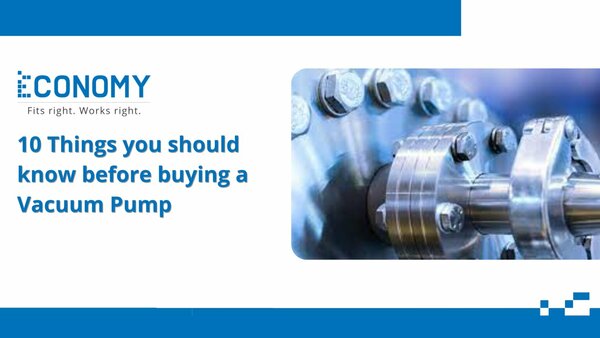Types Of Vacuum Pumps And Their Uses
There are several types of vacuum pumps available on the market, each with its own unique features and uses. The most common types include diaphragm pumps, rotary vane pumps, and turbomolecular pumps.
Diaphragm pumps are ideal for applications requiring a clean and oil-free vacuum, such as in medical devices or laboratories. They are also known for their low maintenance requirements.
Rotary vane pumps are versatile and can handle a wide range of vacuum levels. They are commonly used in industries such as food processing, automotive, and HVAC systems.
Turbomolecular pumps are designed for high vacuum applications where ultra-clean conditions are essential, such as in semiconductor manufacturing or research laboratories.
It is important to consider the specific requirements of your application when choosing a vacuum pump to ensure optimal performance and efficiency.
Factors To Consider When Choosing A Vacuum Pump
When deciding how to buy vacuum pump, there are several important factors to consider to ensure you are selecting the right one for your needs. One key factor is the level of vacuum needed for your specific application. Different pumps have varying levels of vacuum pressure, so it is crucial to match the pump's capabilities with your requirements. Additionally, consider the pump's flow rate and ultimate pressure, as well as its compatibility with the substances you will be working with.
The size and weight of the pump should also be taken into account, especially if portability is a concern. Noise level, energy efficiency, and maintenance requirements are other important factors to consider when evaluating different vacuum pump options. By carefully considering these factors, you can choose a vacuum pump that meets your specific needs effectively.
Maintenance And Upkeep Of Vacuum Pumps
Maintenance and upkeep of vacuum pumps is essential to ensure their optimal performance and longevity. Regular maintenance tasks include checking for leaks, changing oil, cleaning filters, and inspecting seals. It is important to follow the manufacturer's guidelines for maintenance intervals and procedures to prevent breakdowns and costly repairs. Proper lubrication of moving parts is also crucial to reduce friction and wear.
Additionally, keeping the pump clean and free from debris will help prevent clogs and damage. Regularly monitoring the pump's performance and addressing any issues promptly will help extend its lifespan and ensure consistent operation. By investing time in proper maintenance practices, you can maximize the efficiency and reliability of your vacuum pump.
Budgeting For The Purchase And Operation Of A Vacuum Pump
When considering purchasing a vacuum pump, it is important to factor in both the initial cost of the pump and the ongoing operational costs. Budgeting for the purchase should include researching different models to find one that fits within your price range while still meeting your needs. Additionally, consider any necessary accessories or maintenance costs that may be required for proper operation.
When calculating operational costs, take into account energy usage, maintenance and repair expenses, as well as any additional supplies needed for regular use. Understanding the full scope of expenses associated with owning a vacuum pump will help you make an informed decision and avoid any unexpected financial burdens down the line.



